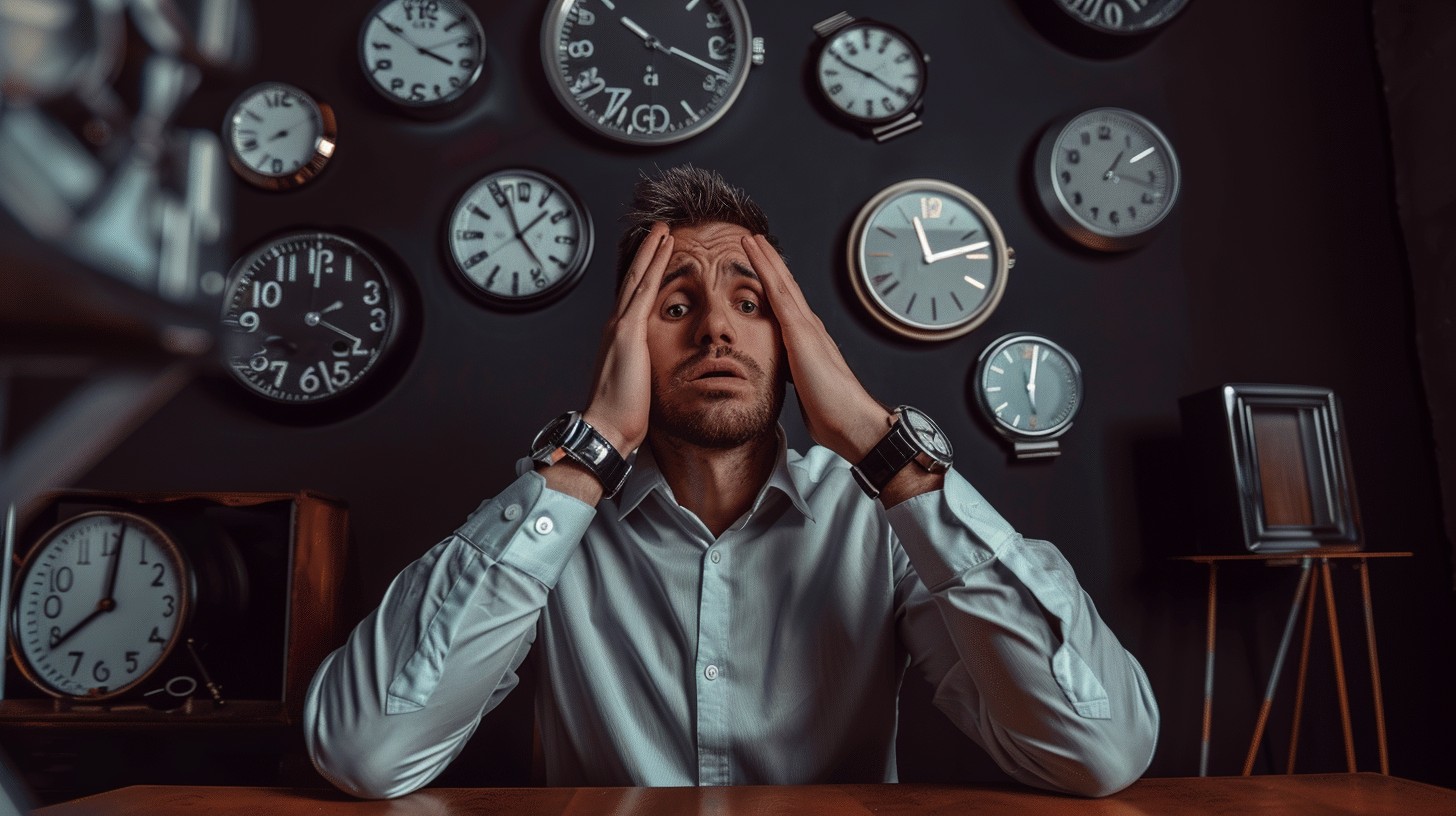Anxiety is a common yet often misunderstood mental health condition. While many of us experience anxiety at different points in our lives—such as before a big presentation or during a significant life change—there’s a substantial difference between occasional anxiety and anxiety disorders. For millions of people around the world, understanding anxiety is essential, as it represents a persistent struggle that can disrupt daily routines, relationships, and overall well-being. By understanding the symptoms, causes, and effective coping mechanisms, we can better manage this condition and support those who suffer from it.
What is Anxiety?
Anxiety is the body’s natural response to stress or perceived danger, triggering a “fight-or-flight” response. This reaction is designed to keep us safe in dangerous situations, but when the body remains in this heightened state for long periods, it can cause significant distress. Anxiety disorders occur when the feelings of fear, worry, or nervousness become chronic, affecting a person’s ability to function normally.
Types of Anxiety Disorders
- Generalized Anxiety Disorder (GAD): Characterized by excessive worry about various aspects of life, such as work, health, or finances, that persists for six months or more.
- Panic Disorder: Involves sudden and intense episodes of fear known as panic attacks, which can include physical symptoms like chest pain, shortness of breath, and a feeling of losing control.
- Social Anxiety Disorder: An intense fear of social situations where one might feel judged or embarrassed, often leading to avoidance of such interactions.
- Specific Phobias: Extreme fear of a particular object or situation (e.g., heights, spiders, flying) that is out of proportion to the actual risk.
These disorders share the core feature of persistent, irrational fear, but they differ in their triggers and how they affect individuals. Knowing these differences helps in identifying and managing anxiety more effectively.
Symptoms of Anxiety
Recognizing the symptoms of anxiety is the first step towards managing it. These symptoms can manifest both physically and psychologically, affecting how a person feels and behaves.
Physical Symptoms
- Rapid Heartbeat: When anxiety strikes, it activates the body’s stress response, leading to an increased heart rate. This can make a person feel like their heart is pounding or fluttering.
- Sweating and Trembling: Anxiety can activate sweat glands and cause a person to sweat more than usual, even in non-stressful environments. In extreme cases, it can cause shaking or trembling.
- Headaches and Muscle Tension: Persistent tension in the muscles—especially around the neck, shoulders, and back—is common with anxiety. Headaches often accompany this tension, creating a cycle of pain and discomfort.
- Shortness of Breath: Anxiety can make people feel like they can’t catch their breath, which can be especially distressing during a panic attack. It’s often accompanied by a feeling of tightness in the chest, making it difficult to take deep breaths.
- Digestive Issues: Many people with anxiety experience stomach problems like nausea, cramps, or irritable bowel syndrome (IBS). This connection is due to the close link between the brain and the digestive system, sometimes called the “gut-brain axis.”
Psychological Symptoms
- Excessive Worry: This involves a pervasive sense of dread or apprehension about everyday situations. It often focuses on worst-case scenarios, even when they are unlikely to happen.
- Restlessness and Agitation: Feeling constantly on edge is a common symptom, making it difficult to sit still or concentrate on tasks. This can also manifest as fidgeting or pacing.
- Irritability: Anxiety can reduce a person’s tolerance for stress, making them more reactive to small annoyances and challenges.
- Difficulty Concentrating: When the mind is preoccupied with worry, it can be challenging to focus on tasks, retain information, or make decisions. This can lead to decreased productivity and increased frustration.
- Sleep Disturbances: Difficulty falling or staying asleep is a frequent complaint among those with anxiety. Racing thoughts can make it hard to unwind at night, leading to sleep deprivation, which in turn can exacerbate anxiety symptoms.
These symptoms can vary significantly between individuals and may change over time. Some people experience a mix of physical and psychological symptoms, while others might find certain symptoms more dominant.
Causes of Anxiety
Anxiety can arise from a complex interplay of factors. Understanding these causes can help in identifying potential triggers and managing anxiety more effectively.
Biological Factors
- Genetics: Research indicates that anxiety disorders can run in families, suggesting a genetic component. If a close relative has an anxiety disorder, there’s a higher likelihood of developing one.
- Brain Chemistry: Imbalances in neurotransmitters like serotonin, dopamine, and norepinephrine can affect mood regulation and lead to anxiety. These chemicals play a crucial role in how the brain processes fear and stress.
- Hormonal Changes: Significant hormonal shifts, such as those during puberty, pregnancy, menopause, or thyroid imbalances, can contribute to anxiety. For example, low estrogen levels during menopause can increase the risk of anxiety in some women.
Environmental Factors
- Chronic Stress: Prolonged exposure to stressful environments, such as high-pressure jobs, difficult relationships, or financial strain, can lead to anxiety over time. The constant state of being on edge wears down the body’s ability to cope.
- Trauma and Abuse: Individuals who have experienced traumatic events like accidents, natural disasters, or abuse are more likely to develop anxiety disorders. Childhood trauma, in particular, can have lasting effects on an individual’s mental health.
- Social Environment: The pressures of living in a highly connected world, where social comparison and the pressure to maintain certain standards are constant, can also contribute to feelings of anxiety.
Lifestyle Factors
- Sleep Deprivation: Poor sleep can reduce the brain’s ability to regulate emotions and stress, making it easier for anxiety to take hold.
- Substance Abuse: The use of alcohol, caffeine, nicotine, or recreational drugs can exacerbate anxiety symptoms. For example, excessive caffeine consumption can mimic symptoms of panic attacks.
- Poor Diet: A diet high in processed foods and low in essential nutrients can impact brain function, making it more difficult to manage stress and anxiety.
How Anxiety Impacts Daily Life
Anxiety can touch every aspect of a person’s life, often in ways that may not be immediately apparent.
Impact on Relationships
Individuals with anxiety may find it difficult to maintain close relationships due to their tendency to withdraw or overthink social interactions. They may avoid social events for fear of being judged or feeling embarrassed, which can strain friendships and romantic relationships. This isolation can, in turn, create a sense of loneliness and alienation.

Impact on Work and School
Anxiety can severely impact work performance and academic achievements. People with anxiety may struggle with deadlines, presentations, or even daily tasks, leading to a decrease in productivity. The fear of making mistakes or being judged can cause individuals to avoid challenges or opportunities, limiting their career growth or educational progress.
Impact on Physical Health
Chronic anxiety doesn’t just stay in the mind—it affects the body too. Conditions like hypertension (high blood pressure), weakened immune system, and digestive disorders are common among those with persistent anxiety. This can lead to frequent illnesses, further increasing stress levels.
Coping Mechanisms for Anxiety
Managing anxiety effectively requires a multifaceted approach. Here are some evidence-based coping mechanisms:
Self-Help Techniques
- Breathing Exercises: Techniques such as 4-7-8 breathing (inhale for 4 seconds, hold for 7, exhale for 8) can quickly calm the nervous system.
- Meditation and Mindfulness: Guided meditation apps or simple mindfulness practices like body scanning can help ground a person in the present moment, reducing anxious thoughts.
- Journaling: Writing down thoughts and feelings can help clarify emotions, identify patterns, and release negative thoughts. It’s a therapeutic way to track progress over time.
- Progressive Muscle Relaxation: This technique involves tensing and then releasing each muscle group in the body, promoting physical relaxation and reducing tension.
Lifestyle Adjustments
- Regular Physical Exercise: Aerobic exercises like running, swimming, or even daily walks can increase endorphins, improving mood and reducing stress levels.
- Balanced Diet: Foods rich in omega-3 fatty acids (like salmon and walnuts), magnesium (like leafy greens), and vitamin D (like eggs and fortified cereals) can support brain health.
- Sleep Hygiene: Creating a sleep-friendly environment, like keeping the room dark and cool, avoiding screens before bed, and maintaining a consistent sleep schedule, can improve sleep quality and reduce anxiety symptoms.
Professional Help
- Therapy: Cognitive Behavioral Therapy (CBT) is one of the most effective treatments for anxiety. It helps individuals identify and challenge negative thought patterns and replace them with healthier perspectives.
- Medication: In cases where anxiety is severe, doctors may prescribe antidepressants, benzodiazepines, or beta-blockers. These medications can help stabilize mood, but they are typically used alongside therapy.
- Support Systems: Joining a support group can be immensely beneficial. It provides a safe space to share experiences and learn from others going through similar challenges.
When to Seek Professional Help
It’s essential to recognize when anxiety has reached a point where self-help methods are no longer sufficient. Consider seeking professional help if you experience:
- Persistent anxiety that interferes with work, school, or daily responsibilities.
- Avoidance behaviors that limit your ability to engage in social or professional activities.
- Physical symptoms like chest pain or shortness of breath that are not linked to a physical condition.
- Thoughts of self-harm or feeling hopeless.
Seeking help is a sign of strength, not weakness. Therapists, psychologists, and psychiatrists can provide tailored treatment plans that address specific needs, improving the chances of recovery.
Conclusion
Anxiety is a complex condition that affects many people, but understanding its symptoms, causes, and coping mechanisms can make a world of difference. Recognizing the signs early and adopting effective strategies can empower individuals to take control of their anxiety. Remember, it’s possible to live a fulfilling life with anxiety when equipped with the right tools and support.
If you or someone you know is struggling with anxiety, don’t hesitate to reach out for help. For more health tips and insights into mental well-being, subscribe to Healthy Heaven and stay updated with the latest articles to support your journey to better health.















